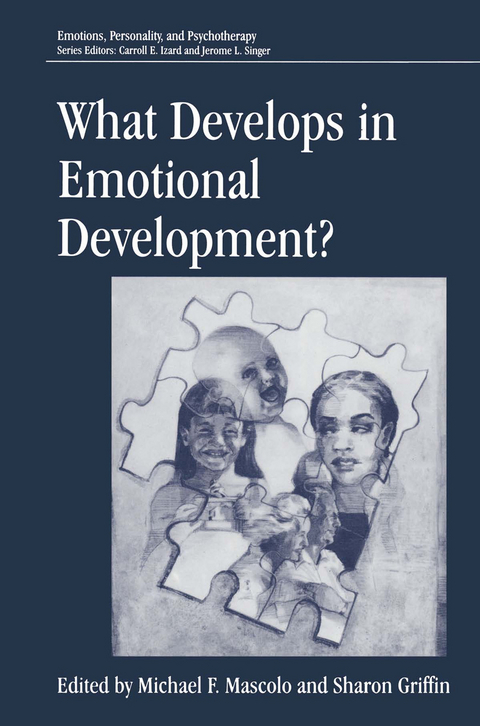
What Develops in Emotional Development?
Kluwer Academic/Plenum Publishers (Verlag)
978-0-306-45722-7 (ISBN)
I. Introduction.- 1. On the Nature, Development, and Function of Emotions.- 2. The Development and Structure of Emotions.- II. Biological and Differential Emotions Perspectives.- 3. Toward a Neuroscience of Emotion: The Epigenetic Foundations of Emotional Development.- 4. Differential Emotions Theory and Emotional Development: Mindful of Modularity.- III. Functionalist Perspectives.- 5. A Functionalist Perspective to the Development of Emotions.- 6. Emotion and the Possibility of Psychologists Entering into Heaven.- IV. Systems Perspectives.- 7. A Dynamic Systems Approach to Cognition—Emotion Interactions in Development.- 8. Toward a Component Systems Approach to Emotional Development.- 9. Alternative Trajectories in the Development of Anger-Related Appraisals.- V. Social and Cultural Perspectives.- 10. The Development of Emotion from a Social Process View.- 11. The Analysis of Emotions: Dimensions of Variation.- 12. The Narrative Construction of Emotional Life: Developmental Aspects.- VI. Conclusion and Integration.- 13. Alternative Conceptions of Emotional Development: Controversy and Consensus.
| Reihe/Serie | Emotions, Personality, and Psychotherapy |
|---|---|
| Zusatzinfo | XIX, 354 p. |
| Verlagsort | New York |
| Sprache | englisch |
| Maße | 155 x 235 mm |
| Themenwelt | Geisteswissenschaften ► Psychologie ► Biopsychologie / Neurowissenschaften |
| Medizin / Pharmazie ► Medizinische Fachgebiete ► Arbeits- / Sozial- / Umweltmedizin | |
| Medizin / Pharmazie ► Medizinische Fachgebiete ► Psychiatrie / Psychotherapie | |
| Studium ► Querschnittsbereiche ► Prävention / Gesundheitsförderung | |
| ISBN-10 | 0-306-45722-9 / 0306457229 |
| ISBN-13 | 978-0-306-45722-7 / 9780306457227 |
| Zustand | Neuware |
| Haben Sie eine Frage zum Produkt? |
aus dem Bereich


